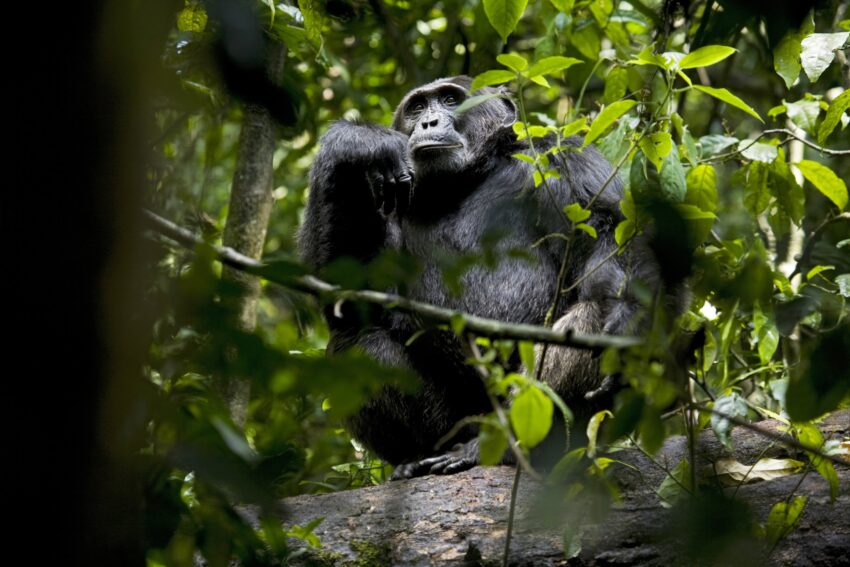Sustainability in Action: Celebrating Our Milestones and Looking Toward the Future

At Manya Africa Tours, we are deeply committed to fostering sustainable practices that benefit both the environment and local communities. Over the past few months, we’ve made significant strides in achieving our sustainability goals. From reforestation efforts to providing eco-friendly cooking solutions, we’re proud of what we’ve accomplished and excited for the road ahead. Here’s an in-depth look at some of our key achievements and the positive impact they’re having.
1,000 Trees Planted & New Chimp Trekking in Bugoma Forest
One of the most exciting milestones we’ve reached this year is the planting of 1,000 trees as part of our One Tourist, One Tree, One Forest initiative. This project, which operates within the Kafred Kibale National Park and Every 5 Acres project in Bugoma Forest, has seen us contribute directly to reforestation efforts aimed at reversing deforestation and restoring biodiversity in Uganda’s forests.
These efforts are critical in a region where forest ecosystems are under threat from logging and human activity. Planting trees helps to combat soil erosion, improve air quality, and provide shelter and food for wildlife, including the chimpanzees that inhabit Bugoma Forest.
This initiative also plays a crucial role in local tourism. For those who are eager to make a direct contribution to conservation, we’ve partnered with local guides to offer chimp trekking in Bugoma Forest. For just $80 per person, tourists can embark on an unforgettable trek to see these magnificent creatures in their natural habitat. The money raised through this activity goes directly toward maintaining the forest and its conservation efforts, ensuring a sustainable future for the area.
Solar Ovens for Local Communities
Our commitment to sustainability extends beyond environmental conservation to support local communities. One of our proudest achievements is the installation of 3 solar ovens in key locations: Ruboni Campsite, Kafred, and the Linda Foundation in Lira. These ovens provide a cleaner, more sustainable way of cooking for the communities that rely on them.
Traditional cooking methods in these areas often involve the use of firewood or charcoal, which can be harmful to both the environment and the health of the people who rely on them. By providing solar ovens, we’re offering a solution that reduces deforestation, minimizes carbon emissions, and improves air quality. Solar ovens harness the power of the sun, providing a sustainable cooking alternative that is free from the harmful impacts of traditional cooking methods.
Supporting Women’s Empowerment Through Project Have Hope
Another key focus of our sustainability efforts has been empowering local women through sustainable initiatives. We’ve partnered with Project Have Hope, an organization that empowers women in Uganda by providing opportunities for income generation through craft making and entrepreneurship.
By supporting Project Have Hope with donations of guest presents, we are helping women gain financial independence and create a better future for themselves and their families. The women in this program are provided with skills training and access to markets where they can sell their crafts, ensuring that they are part of the growing local economy.
Waste Management Partnership for a Cleaner Future
Sustainability isn’t just about planting trees or providing solar ovens—it also involves tackling waste and promoting eco-friendly practices across the tourism sector. That’s why we’ve partnered with Eco Brixs and ESTOA – Sustainable Tour Operators to tackle waste management in Western Uganda. Our efforts focus on reducing waste in the region and promoting recycling and responsible disposal.
For just $20 per person, tourists can visit a waste collection site in Masaka, where they can learn about sustainable waste management practices. Hotels and lodges in the region can also send their waste to Eco Brixs for eco-friendly disposal. This partnership is a key step in creating a circular economy in Uganda, where waste is seen as a resource rather than a burden.
We are incredibly proud of the progress we’ve made in the last year, but we know that our work is far from over. With your support, we are excited to continue growing our efforts in reforestation, waste management, community empowerment, and more. Together, we can create a more sustainable, equitable future for both people and the planet.